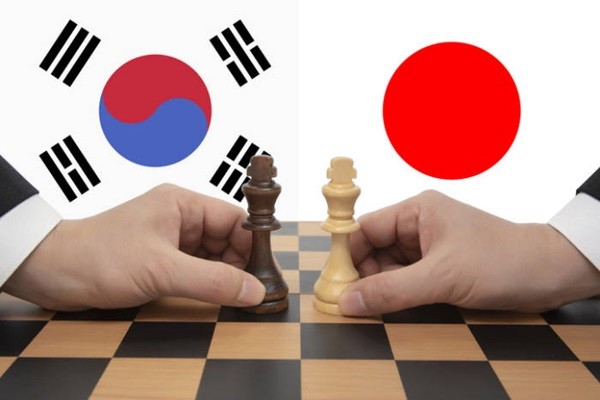As GSOMIA (General Security of Military Information Agreement) between South Korea and Japan has been postponed conditionally, discussion between South Korean authorities and Japanese authorities regarding exportation between two countries is set to start sometime during this week. Discussion between directors of the two governments is expected to take place next month at the earliest.
As a result, it will be interesting to see when Japanese Government’s regulation on exportation of key semiconductor materials will be resolved. South Korea’s industries and academic circles have expressed that South Korean Government needs to continue to strengthen the national competitive edge in materials, components, and equipment regardless of how the situation between two countries unfolds.
According to Ministry of Trade, Industry, and Energy (MOTIE), South Korea and Japan are going to hold a meeting involving section heads of the two governments regarding Japanese Government’s regulation on exportation while MOTIE and METI (Ministry of Economy, Trade and Industry) act as the main government departments for their respective countries sometime during this week and they are also planning to have a meeting involving directors of the two governments.
“We are currently preparing topics that we are planning to discuss with officials from Japanese Government as well as concrete schedule.” said a representative for MOTIE. “Meeting between section heads of the two governments will be held by the end of this month at the earliest and discussion between directors that will actually handle Japanese Government’s regulation in detail will be held next month at the earliest.”
Representative for MOTIE added that a discussion between directors will be held differently from two meetings that were held in Geneva in September and October. “While meetings that were held in Geneva were about formal trial procedures regarding South Korean Government’s lawsuit against Japanese Government through WTO (World Grade Organization’, discussion between directors that handle items related to management of exportation will be a realistic talk to resolve Japanese Government’s regulation on exportation of key semiconductor materials to South Korea.”
While experts in trade are welcoming talks between the two countries, they disagree on how long it will take for Japanese Government’s regulation on exportation to be resolved.
“Discussion between the two countries regarding regulation of strategic materials is a necessary measure for both countries and it is also something that Japanese Government must do.” said Song Ki-ho who is an attorney and had served as the chairman of Minbyun’s International Trade Committee. “Because there needs to be changes to Japanese Government’s systems in order for the two countries to return to their original states, we have to wait and see if a discussion between directors will be a drastic one.”
“Although it is a success to have a meeting between directors of the two governments, it will not be easy for them to come to an agreement regarding whitelist and strategic materials.” said Professor Jung In-kyo of Inha University’s International Trade Department.

South Korean industries have suggested that South Korean Government needs to take a careful approach to this situation as the postponement of GSOMIA does not immediately resolve Japanese Government’s regulation on exportation. They are stating that nothing has changed as uncertainties related to the regulation have not been resolved.
“Postponement of GSOMIA does not indicate that the regulation has been resolved and there are still risks since South Korea is still removed from Japanese Government’s whitelist.” said representatives from multiple industries. “There is nothing the semiconductor industry can really do right now other than paying close attention to the situation and making sure that there is no setback to productions.”
Many have also suggested that South Korean Government needs to continue to carry out its measures to strengthen the national competitive edge in materials, components, and equipment without any setback. “Measures that will strengthen the national competitive edge in materials, components, and equipment are not established to end the relationship with Japan, but they are established to solidify the structures of South Korean industries.” said Professor An Jin-ho of Hanyang University’s New Materials Engineering Department. “Regardless of GSOMIA, South Korean Government needs to continue to take actions to strengthen the national competitive edge in materials, components, and equipment in order to avoid possible scenarios like the current scenario with Japan.”
The Blue House suspended effects of notification of termination of GSOMIA between South Korea and Japan and it has decided to halt legal procedures that were going through WTO regarding the regulation.
Staff Reporter Lee, Kyungmin | kmlee@etnews.com & Staff Reporter Kang, Hyeryung | kang@etnews.com & Staff Reporter Byun, Sanggeun | sgbyun@etnews.com